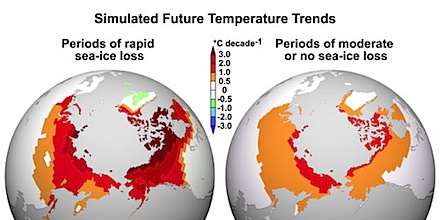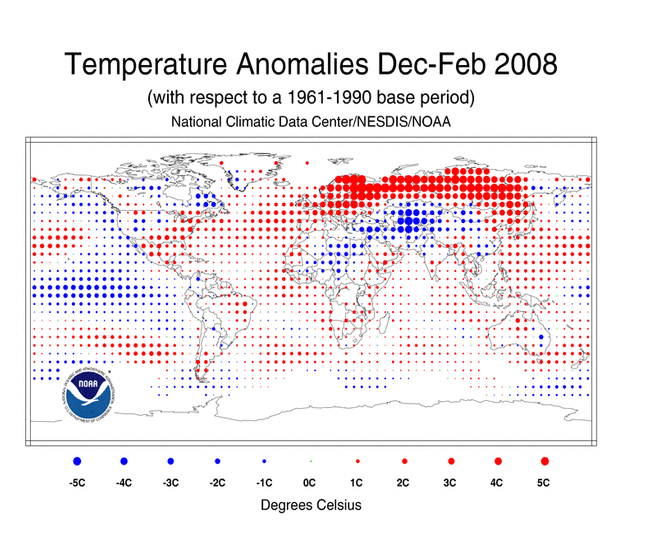 It’s getting hectic down here in the Waipara bunker: articles to write, truffles to harvest – stuff is piling up, not least in a multitude of tabs in my web browser, items set aside as possible subjects for posts here. So here’s one of my infrequent omnibus posts to give me some room to move around the web…
It’s getting hectic down here in the Waipara bunker: articles to write, truffles to harvest – stuff is piling up, not least in a multitude of tabs in my web browser, items set aside as possible subjects for posts here. So here’s one of my infrequent omnibus posts to give me some room to move around the web…
Tag: carbon
Mrs O’Leary’s Cow
 Did you know that all cows are carbon neutral? That all the fuss about forcing farmers into an emissions trading scheme is stuff and nonsense? You do now, thanks to the sterling efforts of the Carbon Sense Coalition, an Australian organisation. They issued a press release yesterday, news of which reached me via the Royal Society‘s daily news alert:
Did you know that all cows are carbon neutral? That all the fuss about forcing farmers into an emissions trading scheme is stuff and nonsense? You do now, thanks to the sterling efforts of the Carbon Sense Coalition, an Australian organisation. They issued a press release yesterday, news of which reached me via the Royal Society‘s daily news alert:
News release: Farm lobbies abandon farmers. The Carbon Sense Coalition today accused the big farming lobby groups, government departments, politicians and Ministers representing agriculture of ignoring science and abandoning farmers to unjustified carbon taxation.
Ignoring science, eh? I went in search of what they might be on about…
[Warning: do not read while drinking – extreme beverage/screen interface risk]
The denial twist
 James Hansen [CV], the most outspoken climate scientist in the world, has been stirring up something of a furore. Invited by the Democrats to speak in Washington on the 20th anniversary of his famous 1988 testimony to Congress on the dangers of global warming, he used to opportunity to complain about the funding of climate disinformation campaigns by fossil fuel companies [full text]:
James Hansen [CV], the most outspoken climate scientist in the world, has been stirring up something of a furore. Invited by the Democrats to speak in Washington on the 20th anniversary of his famous 1988 testimony to Congress on the dangers of global warming, he used to opportunity to complain about the funding of climate disinformation campaigns by fossil fuel companies [full text]:
Special interests have blocked transition to our renewable energy future. Instead of moving heavily into renewable energies, fossil companies choose to spread doubt about global warming, as tobacco companies discredited the smoking-cancer link. Methods are sophisticated, including funding to help shape school textbook discussions of global warming. CEOs of fossil energy companies know what they are doing and are aware of long-term consequences of continued business as usual. In my opinion, these CEOs should be tried for high crimes against humanity and nature. Conviction of ExxonMobil and Peabody Coal CEOs will be no consolation, if we pass on a runaway climate to our children.
Prosecuted for “high crimes against humanity and nature”. That’s a pretty radical view and not surprisingly the climate disinformers have been hard at work trying to rubbish the idea – and Hansen and his work.
It’s the end of the world as we know it (and I don’t feel fine)
 For REM, it “starts with an earthquake, birds and snakes, an aeroplane“, for us, it looks like diminishing Arctic sea ice is the sign. Over at Open Mind, the blogger formerly known as Tamino looks in some detail at the sea ice/rapid warming paper I linked to yesterday. His post makes for sober reading. David Lawrence and his team at NCAR and the NSIDC examined runs of the NCAR-based CCSM climate model that included episodes of rapid sea ice loss, and looked at what happened to climate of the Arctic during those periods. They found that the rate of warming increased 3.5 times faster than the average rate models project over the coming century. From the press release:
For REM, it “starts with an earthquake, birds and snakes, an aeroplane“, for us, it looks like diminishing Arctic sea ice is the sign. Over at Open Mind, the blogger formerly known as Tamino looks in some detail at the sea ice/rapid warming paper I linked to yesterday. His post makes for sober reading. David Lawrence and his team at NCAR and the NSIDC examined runs of the NCAR-based CCSM climate model that included episodes of rapid sea ice loss, and looked at what happened to climate of the Arctic during those periods. They found that the rate of warming increased 3.5 times faster than the average rate models project over the coming century. From the press release:
While this warming is largest over the ocean, the simulations suggest that it can penetrate as far as 900 miles inland. The simulations also indicate that the warming acceleration during such events is especially pronounced in autumn. The decade during which a rapid sea-ice loss event occurs could see autumn temperatures warm by as much as 9 degrees F (5 degrees C) along the Arctic coasts of Russia, Alaska, and Canada.
This is what it looks like in their nifty graphic:

This is what we saw last winter.

Looks as though the process the paper describes is already under way. Canada’s a bit cooler, but then it still has some ice left at the moment…
And the end of the world? Go and re-read my recent post on methane hydrates in the shallow seas north of Siberia. Consider what Lawrence et al have to say about permafrost. Then ponder the meaning of “positive feedbacks in the carbon cycle”. What’s happening up North could make any efforts to reduce global emissions irrelevant, or at best, mean that reaching a relatively low stabilisation target (450ppm?) suddenly a lot harder. Just to make things even harder, we have 30 years of warming to go, even if we could stabilise atmospheric greenhouse gases today.
I’m going to enlarge my veggie garden, and re-examine my thoughts on resilience as a response to climate change.
[Update: Joe Romm at Climate Progress has good coverage.]
[Update 2: Nature‘s In The Field blog reports reactions to the Lawrence et al paper from aboard a ship cruising the Arctic, and in passing confirms some of my thoughts…]
Home thoughts from abroad
![]() Aunty Beeb has taken a look at New Zealand’s carbon ambitions. A report headlined “Attempting to ‘kick the carbon habit” gives a pretty good overview of the special problems – and advantages – that NZ has. There’s a decent plug for Grove Mill wines and their carbon zero status, plenty of room for the PM to tout her carbon ambitions, and a chance for the Greens to point out how our imported cheap cars pose a problem for transport emissions. It also gives National’s Nick Smith a chance to act all pessimistic about the prospects for agricultural emission reductions.
Aunty Beeb has taken a look at New Zealand’s carbon ambitions. A report headlined “Attempting to ‘kick the carbon habit” gives a pretty good overview of the special problems – and advantages – that NZ has. There’s a decent plug for Grove Mill wines and their carbon zero status, plenty of room for the PM to tout her carbon ambitions, and a chance for the Greens to point out how our imported cheap cars pose a problem for transport emissions. It also gives National’s Nick Smith a chance to act all pessimistic about the prospects for agricultural emission reductions.
“The truth is that we are only just starting to nail the science of how to measure the amount of methane and nitrous oxide from agricultural production. I think it is a matter of decades rather than years before there’ll be the sort of breakthroughs that enable us to bring those emissions down.”
Decades? Has Dr Smith never heard of nitrification inhibitors, or about breakthrough research on methanogens? Or – perish the thought – land use change to low emissions crops? If he has his hands on National’s carbon policy, then I am extremely concerned about what might happen after the election if National form the core of the next government.
Luckily, there’s not one word in the BBC story about the ETS and its difficulties. That was a narrow escape. If the world gets to hear that emissions trading scheme is in trouble and that our low carbon talk is just hot air, then all our image building will be wasted. Nick Smith would do well to reflect on that.
